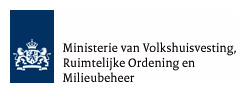French Study Confirms Correlation Between Increased Incidence Child Leukaemia and Vicinity to Nuclear Power Plants
‘Women and children at greater risk’ alarms Women’s Environment and Health Network WECF
13.01.2012 | WECF Press Release
Download the press release in English, Dutch and German.
The national wide study was carried out by the national French institutes l’INSERM[2], de l’IRSN[3] in cooperation with the national child cancer registry of the hospital of Villejuif, including 2753 child leukaemia cases diagnosed between 2002 and 2007 and a control group of 30,000. The addresses were geocoded around 19 nuclear power plants.
This is in line with a USA study by the National Academy Press, USA[4], which argues that women and children are at significantly greater risk of suffering and dying from radiation-induced cancer than a man exposed to the same dose of ionizing radiation. Current regulation of radiation and nuclear activity ignores the disproportionately greater harm to both women and children[5]. Radiation harm includes not only cancer and leukaemia, but reduced immunity and also reduced fertility, increases in other diseases including heart disease, birth defects including heart defects, other mutations.
Sascha Gabizon, international director of the Women’s environment and health network WECF says “studies in Russia have shown that radioactive contamination of pregnant women in Chelyabinsk, Russia, lead to mutations of chromosomes, being transmitted into the 3rd and 4th generation of children[6]. She continues “victims of nuclear energy will never be compensated for, as the nuclear industry pays artificially low insurance costs[7], which means the tax-payer and future generations pay both economically as with their health. Nuclear energy is highly subsidised, the price of nuclear energy does not include the irreversible and long-term damage caused throughout the nuclear fuel cycle[8]
In the light of these finding Gabizon calls for immediate measure for the protection of the population, especially small children, including legislation and support for resettlement of all families currently living in the vicinity of nuclear power plants.
Sabine Bock, Director of WECF Germany, says “we urge government to channel current subsidies – direct and indirect – from nuclear industry to renewable energy and energy saving investments; also, we call on France to halt tax-payers export guarantees for construction of nuclear power plants in other countries, especially developing countries.
________________________________
[1] http://onlinelibrary.wiley.com/doi/10.1002/ijc.27425/abstract
[2] Institut national de la santé et de la recherche médicale
[3] Institut de Radioprotection et de Sûreté Nucléaire
[4] Biological Effects of Ionizing Radiation (BEIR) VII, Phase 2 report, “Health Risks from Exposure to Low Levels of Ionizing Radiation,” published by the National Academy Press in 2006, Washington, DC.
[5] The background for some recommendations include calculations of the different radiation effects on women and children but the final, “allowable” doses to the public do not incorporate this information.
[6] Tomsk research quoted in WECF factsheet on nuclear industry and health: www.wecf.eu/english/publications/index.php
[7] For nuclear power plants in New York state, the insurance would amount to some 6 billion USD each year, which is higher than the cost of construction of the plant (Professor Bell).
[8] Communities in countries with uranium mines, risk irreversible pollution of groundwater aquifers with radio-nuclides, and long term health damage. Developing countries and countries in transition do not have the funds to properly clean-up uranium mining tailing, nor decommission nuclear power plants

































